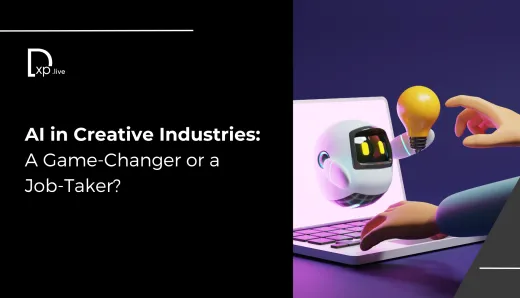AI Voice Generators: Transforming Digital Experience and Raising Ethical Questions


AI voice generators have emerged as a powerful technology, capable of mimicking human speech with astonishing accuracy. Voice synthesis, though widely discussed today, is not a new concept. The roots of speech synthesis stretch back centuries, with early attempts to mimic human speech through mechanical means. Fast forward to the 1980s, and computer-generated voices began to make their way into consumer technology, though they were often rudimentary and robotic.
For instance, Stephen Hawking's iconic voice, generated by a 1986 desktop computer, symbolized the potential of this technology. However, it’s only in recent years that AI has transformed voice generation into something nearly indistinguishable from human speech. The transition from basic phoneme assembly to advanced AI-driven voice synthesis marks a pivotal shift in how voice technology is used.
The Power and Potential of AI Voices
AI voice generators can now produce remarkably natural voices, complete with intonations, rhythms, and even accents. This evolution is powered by deep learning models that analyze vast datasets of human speech, allowing AI to replicate the nuances of natural language.
The rise of AI voice generators presents an exciting frontier for businesses. Companies can now create personalized, consistent customer interactions at scale without the constraints of human limitations. Voice agents in call centers, for instance, can handle customer inquiries with increasing sophistication, potentially reducing wait times and improving customer satisfaction. This is particularly relevant in industries like healthcare, finance, and retail, where efficient, accurate communication is crucial.
The Ethical Dilemma: Misuse of AI Voices
However, the same technology that enables these advancements also opens the door to misuse. AI-generated voices can be exploited for malicious purposes, as evidenced by recent voice scams. In one notable case, a telecom provider used an AI-generated voice resembling President Joe Biden to deceive voters during an election. The ease with which these voices can be cloned and deployed for fraudulent activities raises serious ethical and legal concerns.
Voice cloning, a process where AI is used to replicate a specific person’s voice, represents a double-edged sword. On the one hand, it offers practical applications, such as in content creation, where voice actors can extend their work without additional recording sessions. On the other hand, it introduces the risk of identity theft and impersonation. Scammers could use cloned voices to trick individuals into handing over sensitive information, as seen in fake emergency scams where victims are contacted by what appears to be a loved one’s voice.
AI Voices Enhancing Accessibility
Yet, the potential for positive impact is equally significant. AI voice generation is making strides in accessibility, particularly for individuals with speech impairments. For example, researchers are developing technologies that allow ALS patients to regain their voice using AI. By analyzing neural patterns and applying voice synthesis, these systems can recreate the patient’s voice, enabling communication where it was previously lost. This application of AI showcases the profound, life-changing benefits that this technology can offer.
Transforming User Experience: Intelligent Assistants
Moreover, the integration of AI voice generators into intelligent assistants like Alexa, Google Assistant, and Siri is transforming how users interact with technology. These voice assistants, once limited in their capabilities, are becoming more conversational and capable of handling complex queries. The addition of AI enhances their ability to provide personalized responses, understand context, and maintain more natural interactions with users. This evolution is crucial in delivering a more engaging and efficient user experience, particularly as consumers increasingly rely on voice-activated devices in their daily lives.
From a user experience perspective, the challenge lies in balancing innovation with ethical considerations. Businesses must navigate the fine line between leveraging AI for improved customer engagement and ensuring that this technology is used responsibly. Transparency, consent, and security are paramount in building and maintaining user trust. Companies adopting AI voice generators must prioritize these principles to prevent misuse and protect their customers from potential risks.
As AI voice generation continues to evolve, its role in shaping the digital experience will only grow. The technology’s ability to enhance communication, accessibility, and efficiency is undeniable, but so too are the risks it presents. For businesses, the key to harnessing the full potential of AI voices lies in adopting a user-centric approach—one that prioritizes ethical use, transparency, and security.
The Future of AI Voice Generators
AI voice generators are at the forefront of a new era in digital communication. Their impact on the digital experience is profound, offering both remarkable benefits and significant challenges. As technology advances, it will be crucial for businesses and users alike to remain vigilant, ensuring that AI is used to enhance, rather than undermine, the integrity of digital interactions.
Stay informed about the latest trends in AI and digital technology. Subscribe to digitalexperience.live for in-depth analysis, expert insights, and up-to-date news on the innovations that are shaping our digital future.




